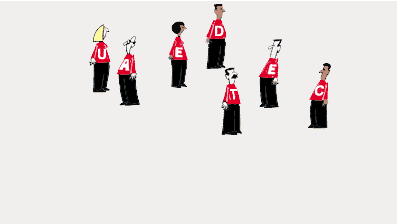Stop Him Before He Gets More Experience

By FRANK RICH
The New York Times
February 11, 2007
AS the official Barack Obama rollout reaches its planned climax on “60 Minutes” tonight, we’ll learn if he has the star power to upstage Anna Nicole Smith. But at least one rap against him can promptly be laid to rest: his lack of experience. If time in the United States Senate is what counts for presidential seasoning, maybe his two years’ worth is already too much. Better he get out now, before there’s another embarrassing nonvote on a nonbinding measure about what will soon be a four-year-old war.
History is going to look back and laugh at last week’s farce, with the Virginia Republican John Warner voting to kill a debate on his own anti-surge resolution and the West Virginia Democrat Robert Byrd seizing the occasion for an hourlong soliloquy on coal mining. As the Senate pleasured itself with parliamentary one-upmanship, the rate of American casualties in Iraq reached a new high. The day after the resolution debacle, I spoke with Senator Obama about the war and about his candidacy. Since we talked by phone, I can’t swear he was clean, but he was definitely articulate.
He doesn’t yet sound as completely scripted as his opponents — though some talking-point-itis is creeping in — and he isn’t remotely defensive as he shrugs off the race contretemps du jour prompted by his White House run. Not that he’s all sweetness and light. “If the criterion is how long you’ve been in Washington, then we should just go ahead and assign Joe Biden or Chris Dodd the nomination,” he said. “What people are looking for is judgment.”
What Mr. Obama did not have to say is that he had the judgment about Iraq that his rivals lacked. As an Illinois state senator with no access to intelligence reports, he recognized in October 2002 that administration claims of Saddam’s “imminent and direct threat to the United States” were hype and foresaw that an American occupation of Iraq would be of “undetermined length, at undetermined cost, with undetermined consequences.” Nor can he be pilloried as soft on terrorism by the Cheney-Lieberman axis of neo-McCarthyism. “I don’t oppose all wars,” he said in the same Chicago speech. “What I am opposed to is a dumb war.”
Now that Mr. Obama has passed through Men’s Vogue, among other stations of a best-selling author’s cross of hype, he wants to move past the dumb phase of Obamamania. He has begun to realize “how difficult it is to break through the interest in me on the beach or that my wife’s made me stop sneaking cigarettes.” He doesn’t expect to be elected the leader of the free world because he “can tell a good joke on Jay Leno.” It is “an open question and a legitimate question,” he says, whether he can channel his early boomlet into an electoral victory.No one can answer that question at this absurdly early stage of an absurdly long presidential race.
But Mr. Obama is well aware of the serious criticisms he engenders, including the charge that he is conciliatory to a fault. He argues that he is “not interested in just splitting the difference” when he habitually seeks a consensus on tough issues. “There are some times where we need to be less bipartisan,” he says. “I’m not interested in cheap bipartisanship. We should have been less bipartisan in asking tough questions about entering into this Iraq war.”
He has introduced his own end-the-war plan that goes beyond a split-the-difference condemnation of the current escalation. His bill sets a beginning (May) and an end (March 31, 2008) for the phased withdrawal of combat troops, along with certain caveats to allow American military flexibility as “a big, difficult, messy situation” plays out during the endgame. Unlike the more timid Senate war critics, including Hillary Clinton, Mr. Obama has no qualms about embracing a plan with what he unabashedly labels “a timeline.” But he has no messianic pretensions and is enough of a realist to own up to the fact that his proposal has no present chance of becoming law.
Nor do any of the other end-the-war plans offered by Congressional Democrats — some overlapping his, some calling for a faster exit than his. If a nonbinding resolution expressing mild criticism of President Bush’s policy can’t even come to a vote in the Senate, legislation demanding actual action is a nonstarter. All the Democrats’ parrying about troop caps, timelines, benchmarks, the cutting off of war funding, whatever, is academic except as an index to the postures being struck by the various presidential hopefuls as they compete for their party’s base. There simply aren’t 60 votes in the Senate to force the hand of a president who, in Mr. Obama’s words, “is hellbent on doing what he’s been doing for the last four years.”Unless, of course, Republicans join in.
The real point of every Iraq proposal, Mr. Obama observes, is to crank up the political heat until “enough pressure builds within the Republican Party that they essentially revolt.” He argues that last week’s refusal to act on a nonbinding resolution revealed just how quickly that pressure is building. If the resolution didn’t matter, he asks, “why were they going through so many hoops to avoid the vote?”
He seconds Chuck Hagel’s celebrated explosion before the Senate Foreign Relations Committee, when “he pointed at folks” and demanded that all 100 senators be held accountable for their votes on what Senator Hagel called “the most divisive issue in this country since Vietnam.” That’s why Mr. Obama is right when he says that the individual 2008 contests for the Senate and the House are at least as important as the presidential race when it comes to winding down the war: “Ultimately what’s going to make the biggest difference is the American people, particularly in swing districts and in Republican districts, sending a message to their representatives: This is intolerable to us.”
That message was already sent by many American voters on Election Day in 2006. Rahm Emanuel, the Illinois congressman who, with his Senate counterpart, Chuck Schumer, oversaw that Democratic takeover, smells the blood of more Republicans in “marginal districts” in 2008. His party is now in the hunt for fresh candidates, including veterans of Iraq and Afghanistan. Such is the sense of impending doom among House Republicans that their leader, John Boehner, told CNN on Jan. 23 that he could render a verdict on whether the latest Bush Iraq strategy is “working” in a mere “60 to 90 days.”
In the Senate, even the rumor of a tough opponent is proving enough to make some incumbents flip overnight from rubber-stamp support of the White House’s war policy to criticism of the surge. Norm Coleman of Minnesota started running away from his own record the moment he saw the whites of Al Franken’s eyes.
Another endangered Republican up for re-election in 2008, John Sununu of New Hampshire, literally sprinted away from the press, The Washington Post reported, rather than field questions about his vote on the nonbinding resolution last week.My own guess is that the Republican revolt will be hastened more by the harsh reality in Iraq than any pressure applied by Democratic maneuvers in Congress. Events are just moving too fast.
While senators played their partisan games on Capitol Hill, they did so against the backdrop of chopper after chopper going down on the evening news. The juxtaposition made Washington’s aura of unreality look obscene. Senator Warner looked like such a fool voting against his own principles (“No matter how strongly I feel about my resolution,” he said, “I shall vote with my leader”) that by week’s end he abruptly released a letter asserting that he and six Republican colleagues did want a debate on an anti-surge resolution after all.
(Of the seven signatories, five are up for re-election in 2008, Mr. Warner among them.) What anyone in Congress with half a brain knows is that the surge was sabotaged before it began. The latest National Intelligence Estimate said as much when it posited that “even if violence is diminished,” Iraq’s “absence of unifying leaders” makes political reconciliation doubtful. Not enough capable Iraqi troops are showing up and, as Gen. Peter Pace told the Senate last week, not enough armored vehicles are available to protect the new American deployments.
The State Department can’t recruit enough civilian officials to manage the latest push to turn on Baghdad’s electricity and is engaged in its own sectarian hostilities with the Pentagon. Revealingly enough, the surge’s cheerleaders are already searching for post-Rumsfeld scapegoats. William Kristol attacked the new defense secretary, Robert Gates, for “letting the Joint Chiefs slow-walk the brigades in.”
Washington’s conventional wisdom has it that the worse things go in the war, the more voters will want to stick with the tried and true: Clinton, McCain, Giuliani. But as Mr. Obama reminds us, “Nobody had better Washington résumés than Dick Cheney or Donald Rumsfeld.” In the wake of the catastrophe they and their enablers in both parties have made, the inexperienced should have a crack at inheriting the earth, especially if they’re clean.





















